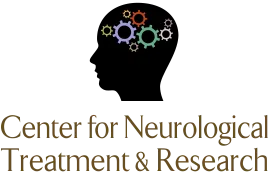Essential tremor, also known as familial tremor, benign essential tremor or hereditary tremor is a rhythmic shaking movement caused by involuntary muscle contractions.
What Is Essential Tremor?
This tremor, termed essential because it is not related to an underlying disorder, most frequently affects the hands and neck; it generally spares the muscles of the torso and lower limbs. Characteristically, essential tremor becomes more pronounced during activities such as writing or using a knife and fork, as distinguished from tremors in Parkinson's disease, which often diminish with movement. Essential tremor usually develops in middle age or later. Symptoms appear gradually. The most common of the so-called shaking disorders, essential tremor is not a serious health risk. It responds well to treatment and in fact seems to be an indicator of an unusually long life.
What Causes Essential Tremor?
- The cause of essential tremor is unknown.
- Genetic factors play a role in about half of all cases (familial tremor).
- Other causes of essential tremor include alcohol withdrawal, hyperthyroidism, pheochromocytoma (type of tumor of the sympathoadrenal system), excessive caffeine intake, use of certain medications, cigarette smoking and Wilson's disease.
Symptoms of Essential Tremor
- Rhythmic shaking of the hands and fingers and, less frequently, the head, tongue, larynx, eyelids, or other parts of the body. The speed of the shaking movements may be rapid or moderate.
- Worsening of the tremor under the following conditions: with emotional or physical stress; when voluntarily moving the hands, head, and other muscles; when voluntarily trying to hold the head or hands still
- Cessation of the tremor when at rest
- Shaky handwriting
- Quavering voice
- Difficulty holding or using small objects (e.g., silverware or a pen)
- Head nodding
Prevention of Essential Tremor
- There is no known way to prevent essential tremor.
Diagnosis of Essential Tremor
- Patient history and physical examination are performed.
- Blood tests and imaging studies (head CT, brain MRI and x-rays) usually are normal but may be performed to rule out other conditions.
How to Treat Essential Tremor
- Beta-blocking drugs (commonly used to treat high blood pressure) such as Inderal (propranolol) and Mysoline (primidone) are generally the most effective medications for treating essential tremor.
- Other drugs, including anticonvulsants (such as primidone) and tranquilizers (such as clonazepam, lorazepam, or alprazolam), may be used to treat muscle tremors that do not respond to beta-blockers.
- Patients may be advised to drink one glass of wine or one ounce of 80-proof liquor a day, because alcohol has been shown to ease tremors in some cases. However, sometimes a rebound effect occurs, causing the tremor to worsen after the effect of the alcohol has worn off. In addition, some doctors fear the potential risk of alcohol abuse.
- Avoid the consumption of caffeine and other stimulants, which may exacerbate the tremor.
- In severe, disabling cases that do not respond satisfactorily to medications, controlled injections of botulinum toxin (which causes the muscle paralysis associated with botulism) into muscles of the forearm or neck may stop tremors.
- Surgical destruction of specific cells within the brain, or electrical stimulators implanted in certain regions of the brain, may provide relief from symptoms in severe cases that do not respond to other forms of treatment, but this is done only as a last resort.
When to Call a Doctor
- Make an appointment with a doctor if involuntary trembling or shaking of the hands, head, or other muscles interferes with normal activities.

